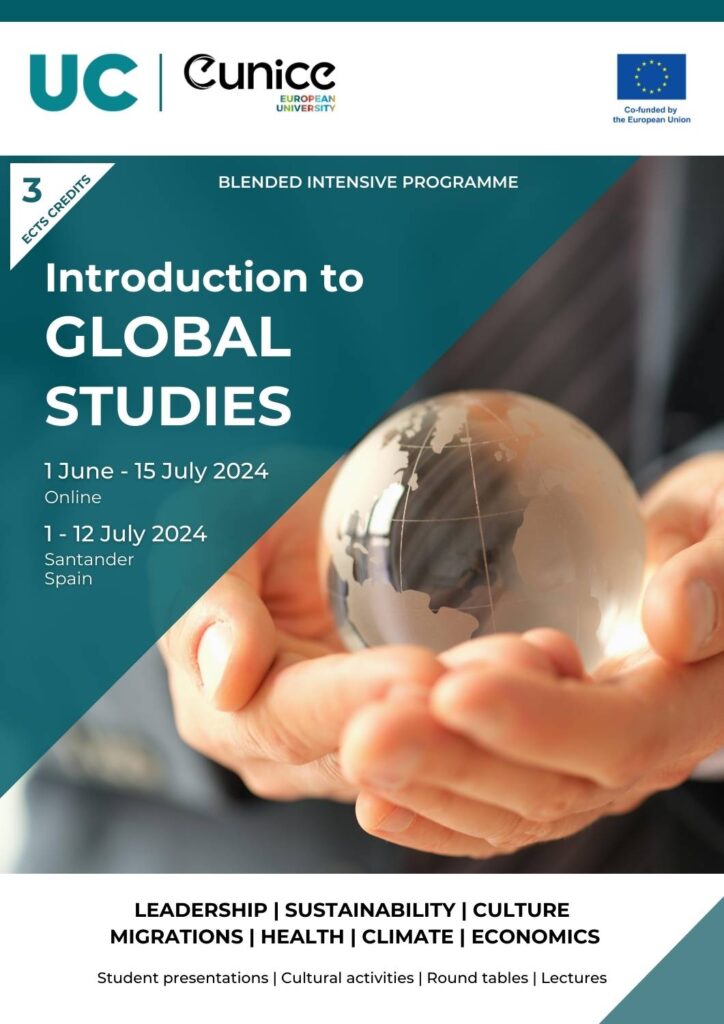Organised by the University of Cantabria (Spain), Introduction to Global Studies is an Erasmus+ Blended Intensive Programme. It is a presential course with a mandatory online part that will be delivered in Santander (Spain), at the Faculty of Business and Economics, and taught in English language.
Objectives
- Understanding the concept of globalization and its different dimensions.
- Identifying the concepts associated with globalization and being able to relate them.
- Encouraging the use of information management tools for permanent updating (main websites of international organisations and think tanks).
- Developing a critical spirit and reasoned discussion in matters related to global studies.
Learning outcomes
- Negotiating: conflict treatment, negotiation and cooperation in the field of global studies.
- Interpreting the intervention of economic, cultural and social agents.
- Learning the process of economic and social internationalisation. Ability to obtain theoretical and practical knowledge on the process of internationalisation of the economy.
The course is taught by lecturers from the University of Cantabria, the University of North Carolina at Charlotte (USA), the University of Catania (Italy), Karlstad University (Sweden) and Brandenburg University of Technology Cottbus-Senftenberg (Germany), the Institute of Biomedicine and Biotechnology of Cantabria and IHCantabria (Spain).
Methodology
The training activities will be of a theoretical-practical nature. The teaching methodology will be active, seeking the participation of students with the professor and in groups.
Bibliography and teaching materials will be uploaded to EUNICE Moodle platform.
Contact details
Professor Jesús Ángel González López.



